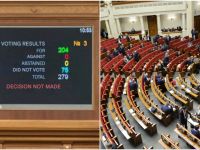The presidential vacuum and the ongoing regional conflicts weighed heavily on Lebanon’s retail sectors, which have experienced renewed pressures undermining the level of economic activity in the first quarter of 2015, according to the Beirut Traders Association-Fransabank Retail Index.
“Despite the relatively stable security situation in the country, markets remained highly affected by the ongoing conflicts in the region, in addition to the paralysis in the government’s institutions caused by the delay in electing a Lebanese president,” a statement Thursday announcing the first quarter index results said.
The index reported a drop of 10.4 percent from 58.9 in Q1 of 2014 to 52.78 in Q1 of 2015.
The statement said that the positive momentum generated by a slight revival in demand around the end of 2014 did not extend to the first quarter of 2015. “The last quarter of 2014 had actually witnessed a real improvement in sales of almost 3 percent in comparison to the last quarter of 2013, and the BTA-Fransabank Retail Index had, after consecutive declines for almost 3 years, registered for the first time an increase from 54.45 in Q3 of 2014 to 58.42 in Q4,” it added.
The report said that CPI, as published by the Central Administration of Statistics monthly, has revealed a drop of 3.38 percent in prices between the first quarter of 2014 and the first quarter of 2015.
“Mere economics indicate that a decline in CPI is a direct reflection of a drop in demand on consumer products that results automatically in lower prices for those products,” it said. “Yet, a pickup is supposed to follow as lower prices do fuel a re-strengthening of demand and a revival of the markets, provided that no other negative factors emerge and affect the normal course of economic activity,” it added.
According to the statement, the main sectors witnessing an improvement in sales between the first quarter of 2014 and the first quarter of 2015 include liquid fuels (13.02 percent), bakeries and pastry (19.41 percent), food products (6.56 percent), liquor and spirits (16.10 percent), tobacco (14.94percent), as well as home appliances and electrical equipment (9.85 percent).
On the other hand, many other sectors, such as pharmaceuticals, clothing, footwear, furniture, home equipment, books and magazines experienced drops ranging from 10 percent to 14 percent in their real sales value during the first quarter of 2015 compared to the first quarter of 2014, whereas the fast food and restaurants sector reported a less drastic drop of 4.14 percent.
The statement called upon political forces to address the critical current economic issues efficiently and without any delay in a bid to revive the overall business climate in the country. “It is about time to revive all sectors for them to have a positive impact on the national economy,” it said.








